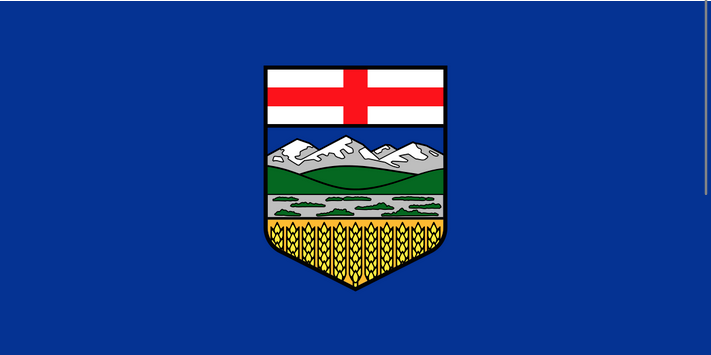For many years past, and probably many to come, fiscal conservatives have told governments to have small cabinets. Let’s face it–it’s a symbolic gesture at best and the last place where saving money should be a factor. Effectiveness should be our goal, not frugality, and a smaller cabinet saves little.
Do we believe in responsible, democratic government or having the fewest elected MLAs or MPs covering the broadest portfolios possible? Is it in any way desirable to have governments on bureaucratic autopilot while ministers spin multiple plates? It is bad enough that ministers and top bureaucrats shift from portfolio to portfolio as the new, wise managers of such divergent things.
The issue has come to the fore due to the election of the Danielle Smith United Conservative Party government in Alberta. A look at the pay structure there illustrates how little extra cabinet pay means.
In Alberta, an MLA makes $120,936. A minister with a portfolio makes an extra $60,468, while a minister without a portfolio makes $27,216. Committee chairs make $30,240 and deputy committee chairs make $15,120. The chief government whip makes $12,096 and the assistant government whip makes $9,072.
Smith gets an extra $65,244 for being premier, and if she got ridiculous and gave every one of the other 47 UCP MLAs a cabinet post, their total extra salary would be $2,841,996. Her previous cabinet was 27 people, which is half that amount anyway, with a few more bonus dollars for the whip, assistant whip, committee chairs, etc.
The smallest cabinet in recent memory was Rachel Notley’s 2015 cabinet of 12. The best reason for it was so few of her MLAs had any previous experience in government whatsoever. Those cabinet ministers were paid even more in 2015 than Smith’s are today because the pay cut and salary freeze implemented by Kenney in 2019 remains in effect.
Direct employees of the province of Alberta number 25,000. If their annual pay was cut $100 each, the savings would be $2.5 million, which rivals the costs of making all Alberta MLAs into cabinet ministers. Clearly this is where the savings lie.
According to a 2020 report by the Canadian Taxpayers Federation, the average pay for top Alberta deputy ministers (the top bureaucrat in a department) was $327,297, while the assistant deputy ministers made $234,084 on average. The CTF proposed these amounts be dropped to $261,838 and $187,268, respectively. That would still leave assistant deputies getting paid the same as cabinet ministers.
Believe it or not, a cabinet minister that takes any degree of hands-on leadership in a department is somewhat novel. Jason Kenney took this approach as the federal minister of citizenship, immigration, and multiculturalism from 2008-2013. Kenney’s top-down form of leadership from an elected official over a department was so unusual, deputy minister Andrew Griffith wrote an entire book about it called “Policy Arrogance or Innocent Bias: Resetting Citizenship and Multiculturalism.”
Kenney, ever-occupied with reaching out to ethnic minorities on behalf of the Conservatives, sometimes learned of policy issues from anecdotal accounts he heard. Some of them required direct investigation and study by the department because the lenses of academia had never considered the issues. One example was the issue of how ethnic tensions were being imported into Canada between certain groups based on politics from their homelands. Of course, academics only viewed racism through the lens of white vs. non-white, leaving inter-ethnic minority tensions in an unexamined void.
Kenney often had the right idea, though getting that idea properly executed was sometimes more of a challenge. The point is that his mandate as a minister had the proper scope to empower him to offer democratic direction to the permanent apparatus of government. Kenney was named by Macleans in 2011 as the hardest-working minister on Parliament Hill, which suggests effective leadership by a cabinet minister doesn’t come easily.
It is quite true that government at the provincial and federal level has become bloated and could use more efficiency. Perhaps a smaller cabinet can set a tone for the rest of government or make major governmental decisions less unwieldy, but that’s about all that can be said for it. The real savings come from dealing with the unionized bureaucracy and the slightest bit of restraint shown there will go farther than limiting the size of a cabinet.
It is welcome if those chosen by people show some modesty in their pay and even their expense accounts, so long as the sacrifice of the quality of people elected and the effectiveness of their job is next to nothing. As it is, the wealthy people that help the elected into power and the bureaucratic departments doing the work have a much better ratio of dollars received versus scrutiny received.
Prime Minister Trudeau, Premier Smith and any other governmental leader should be thinking of how best to govern when their cabinets are chosen. Although some geographic considerations can’t be ignored in a federal cabinet, saving money by a cabinet size should be as irrelevant as meeting contrived quotas of sex and race. The goal should be putting the most capable people in an appropriately-sized portfolio for the best results possible.
Lee Harding is a Research Fellow for the Frontier Centre for Public Policy.



